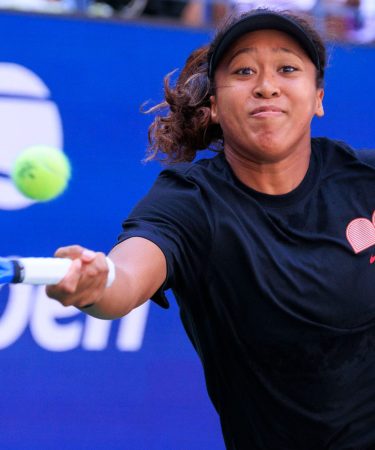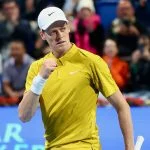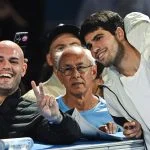Naomi Osaka “has nothing positive to say about herself” after Wimbledon loss, but her coach Mouratoglou has
Naomi Osaka is still balancing between short-term sensitive disappointment and self-appreciation with long-term goals, after her exit in the third round of Wimbledon.
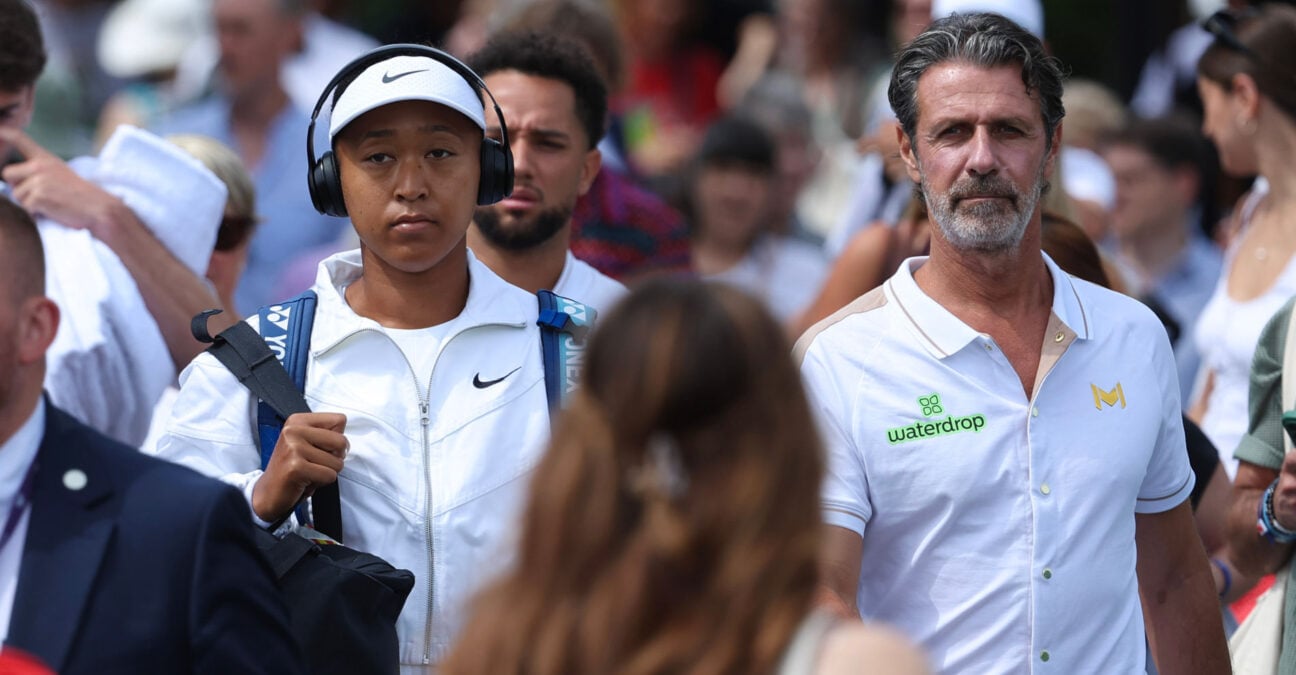 Naomi Osaka and Patrick Mouratoglou, Wimbledon 2025 | © Antoine Couvercelle for MTG
Naomi Osaka and Patrick Mouratoglou, Wimbledon 2025 | © Antoine Couvercelle for MTG
Naomi Osaka’s exit from Wimbledon was marked not just by a tough loss but, once again, by the very visible disappointment she expressed during her post-match press conference.
This time, Osaka cried before coming to the reporters. At Roland-Garros five weeks ago, she had to pause in the middle of the conference to make sure she could continue to talk. In London, tears were dry, but their mark showed up.
Despite fighting hard in a close three-set battle against Anastasia Pavlyuchenkova, Osaka’s mood was somber and self-critical, revealing a player grappling with frustration and high expectations.
Reflecting on the match, the former number one and four-time Grand Slam champion acknowledged missed opportunities, particularly break points she couldn’t convert – two that would have led her to serve for the match – but the disappointment went deeper.
Osaka “not feeling anything”
“I’m just really upset,” she admitted. “I think if I look back on it, I can be happy with how I played… but right now, I have nothing positive to say about myself, which is something I’m working on.”
“Now I don’t feel anything, so I guess I’d prefer to feel nothing than everything,” she continued, as she conscientiously locked away her emotion just to be there.
When asked about the future, with a long hard-court swing leading to the US Open coming in ten days, Osaka was hesitant but honest. “I’m not really sure right now. Obviously, I look forward to it. But I think last year I put a lot of stress on myself because I know I have a history of playing well there, and then also the Asian Swing.”
A two-time winner at the US Open (2018, 2020), she had a 3–3 mark last year, beaten by Mertens, Krueger, and Muchova in New York.
Mouratoglou : “Head high”
However, amid the self-doubt, her coach Patrick Mouratoglou (co-founder of Tennis Majors) praised Osaka’s progress on grass courts and urged patience. “We keep the head high. It was a close match and you started to enjoy playing on grass,” he wrote on his social media accounts. “You are improving every day. Success requires patience and we are patient.”
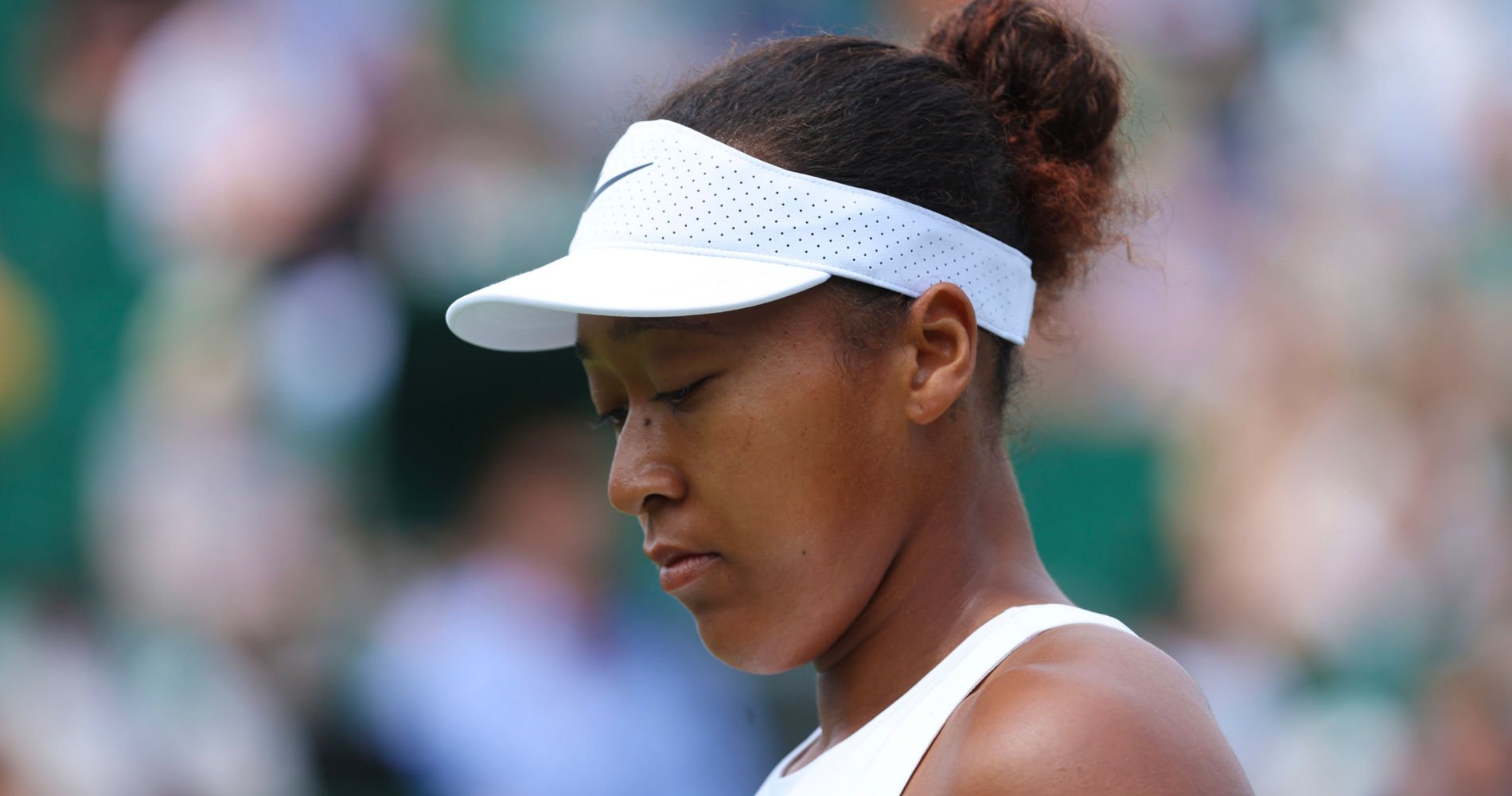
Having started to work with the Japanese star nine months ago, Mouratoglou still hasn’t led Osaka to a second week in a Grand Slam or into the Top 32 that would allow her to be seeded at the US Open, despite a first trophy on clay at Saint-Malo and a final at Auckland. The Japanese player is 20–10 this season and will be back in the Top 50 on July 14.
No person wants to feel this way, like, multiple times throughout the year, but tennis players are crazy, so…
Mouratoglou recently urged Osaka to lower her expectation level in terms of immediate results and to focus on her game and plans, as she feels physically and mentally ready to be back at the top.
“I’ve had a really good talk with Patrick before this,” Osaka said upon arriving in London. “He says he can sense that I put a lot of expectations on myself. I know that I do, too. In a weird way, the more time passes, the more stressed I get, because I feel like I should be doing better. We kind of had a talk about that. Now I wouldn’t say that I don’t care about results, but I’m more caring about the effort that I put into every point. I hope eventually it will lead to what I want it to.”
“My competitive nature”
“I have so many not-goals but things I want to attempt to achieve,” Osaka continued on Friday. “It would be kind of not funny, but I feel like while I still have the opportunity to try to do it, I want to, even though I get very upset when I lose, but I think that’s my competitive nature. That’s also the younger sister syndrome. Yeah, I mean, no person wants to feel this way, like, multiple times throughout the year, but tennis players are crazy, so…”
So Osaka, now a mother, made the choice to remain a tennis player and competitor, with all the pain that comes with it. Prior to even greatest rewards.








